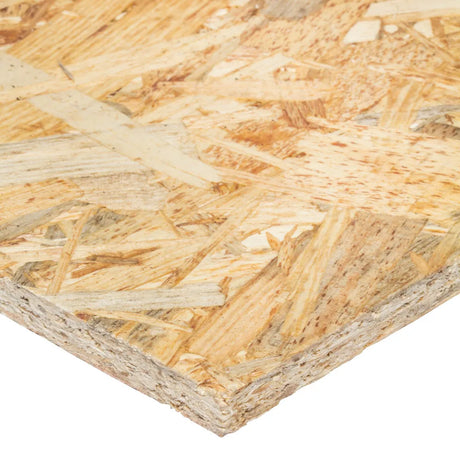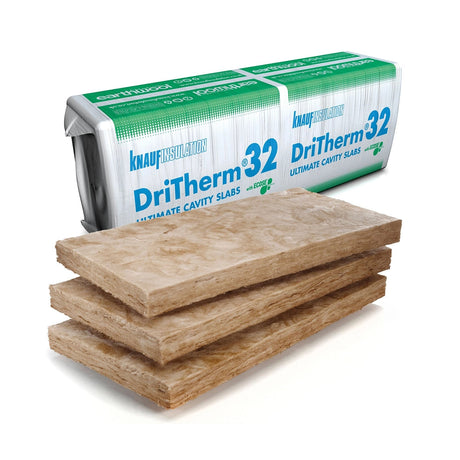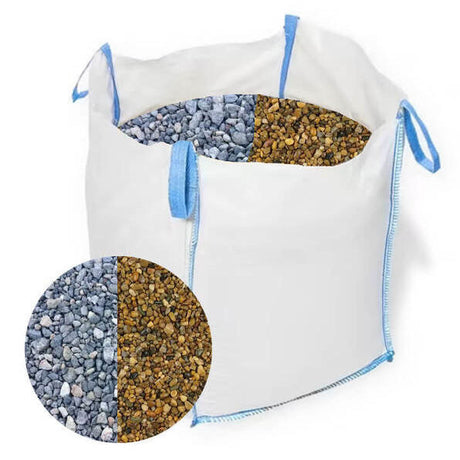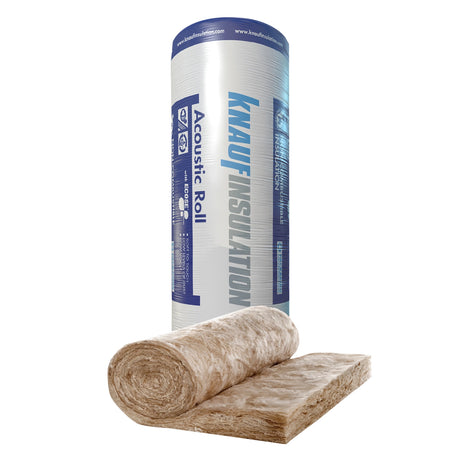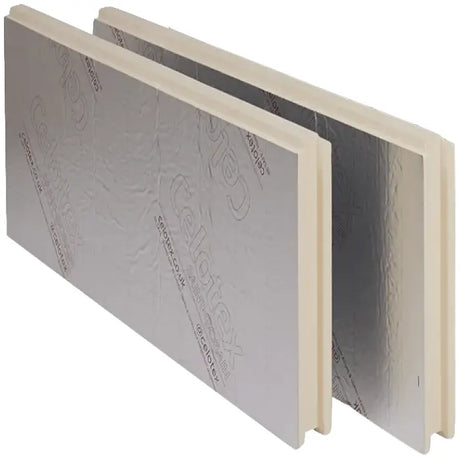When planning soundproofing improvements for your home or workspace, selecting the appropriate thickness of insulation material can significantly impact both acoustic performance and overall project costs. At DIY Building Supplies, we've guided countless customers through this crucial decision, drawing from our extensive experience as Nottingham's leading online builders merchant. Understanding the fundamental differences between various thickness options will help ensure your project achieves the professional acoustic comfort you're aiming for whilst staying within budget.
Understanding Acoustic Insulation and Its Purpose
Sound insulation material, commonly available in roll format, represents a specialised mineral wool product designed specifically to reduce noise transmission between rooms or floors within buildings. The material works by creating countless tiny air pockets within its fibrous structure, which trap and dissipate sound energy before it can pass through walls, floors, or ceilings.
Key benefits of quality mineral wool insulation include:
-
Excellent sound absorption across multiple frequency ranges
-
Non-combustible fire resistance for enhanced safety
-
Breathable structure that manages moisture effectively
-
Easy installation between standard stud and joist spacings
-
Long-term performance without settling or degradation
At DIY Building Supplies, we source our sound insulation products exclusively from established UK manufacturers including Knauf, Isover, and Rockwool, ensuring every product meets the exacting standards our customers have come to expect. These manufacturers employ state-of-the-art production facilities that create insulation with densities typically exceeding 10kg/m³, the minimum threshold required for effective acoustic performance in residential applications.
The superior sound absorption achieved through proper mineral wool insulation proves particularly valuable in applications where acoustic privacy is essential. The fibrous structure creates resistance to sound wave transmission whilst maintaining breathability and fire resistance that rigid alternatives cannot match. This combination of properties often pays dividends through enhanced living comfort, better sleep quality, and improved property value.
Thickness Options for Different Room Types
Home Offices and Study Spaces
For projects requiring acoustic separation in home working environments, insulation thickness of 50mm to 75mm offers exceptional balance between performance and practicality. This depth fits comfortably within standard 100mm stud wall constructions whilst providing space for electrical services and maintaining reasonable room dimensions.
The 50mm option has gained significant popularity with customers working from home, where minimising disturbance from household activities whilst preventing video conference audio from disturbing other occupants represents the primary concern. At DIY Building Supplies, we regularly advise customers creating dedicated home offices following the significant shift towards remote working.
The 75mm thickness provides enhanced performance across a broader frequency range, making it particularly effective for customers dealing with multiple noise sources or those seeking to future-proof their installations against changing work patterns.
Bedrooms and Living Areas
For applications where peaceful sleep or containing entertainment system noise takes priority, insulation depths of 75mm to 100mm demonstrate superior performance characteristics. This additional thickness provides better absorption of both high-frequency sounds such as conversation and television dialogue, alongside lower-frequency noise including bass music, traffic rumble, and mechanical system vibration that can prove particularly disruptive to sleep.
Our technical team at DIY Building Supplies often recommends the 100mm option for customers converting loft spaces into bedrooms or creating sleeping accommodation in properties located near busy roads. The investment in this deeper insulation often proves justified through the enhanced acoustic comfort it provides, particularly for light sleepers or families with young children requiring undisturbed rest.
Music Rooms and Home Entertainment Spaces
Spaces dedicated to music practice, home recording, or cinema rooms with substantial sound systems require insulation depths starting at 100mm as a baseline specification. Some situations may benefit from 150mm thickness, particularly when dealing with bass-heavy instruments, drum kits, or surround sound systems capable of generating significant low-frequency energy.
The additional material depth provides the mass and absorption capacity needed to contain low-frequency sounds that possess longer wavelengths capable of easily penetrating standard building elements.
At DIY Building Supplies, we've observed that customers who invest in adequate thickness for these demanding applications rarely regret the decision, whilst those who compromise often find themselves undertaking costly remedial work to address inadequate initial specifications.
Building Regulations and Performance Standards
Understanding UK building regulations helps ensure your soundproofing project meets legal requirements whilst achieving your acoustic objectives. Part E of the Building Regulations specifically addresses sound insulation in residential properties, establishing performance standards that constructions must achieve rather than mandating specific material thicknesses or installation methods.
Separating Walls and Floors
For separating walls and floors between different dwellings, such as in flats or terraced houses, the regulations specify minimum sound insulation performance levels measured in decibels. These standards distinguish between airborne sound insulation (protecting against noise like voices or music) and impact sound insulation (protecting against noise like footsteps or furniture movement).
The key consideration involves ensuring your chosen insulation possesses adequate density to meet these performance requirements. Quality products from manufacturers including Knauf, Isover, and Rockwool that we stock at DIY Building Supplies typically exceed the 10kg/m³ minimum density threshold, providing confidence that properly installed systems will achieve regulatory compliance.
Internal Walls Within Dwellings
For internal walls within single dwellings, recent regulatory updates have introduced requirements for reasonable acoustic privacy between bedrooms and rooms containing toilets or bathrooms. A standard stud wall incorporating 50mm mineral wool insulation typically achieves adequate performance for most internal applications, though customers seeking enhanced acoustic comfort often benefit from specifying 75mm or 100mm thickness.
Installation Considerations and Space Requirements
Stud Wall Applications
The depth of timber or metal studs used in your wall construction immediately influences your insulation thickness options. Most modern stud walls employ either 75mm or 100mm studs, with the former accommodating 50mm insulation alongside electrical services, whilst the latter allows 75mm or even 100mm insulation with careful service routing.
The standard 600mm width of quality insulation products has been specifically designed to fit between typical stud spacings in UK construction, significantly simplifying installation whilst minimising material waste. At DIY Building Supplies, we emphasise this dimensional coordination as it reduces both installation time and overall project costs for our customers.
Floor Construction Depth
When insulating floors, particularly the timber suspended floors common throughout UK residential properties, the depth between joists becomes your limiting factor. Standard floor joists range from 150mm to 225mm depth, providing considerably more flexibility than wall applications whilst still requiring consideration of service routing, flooring materials, and any underfloor heating systems.
For most floor installations, 100mm insulation provides excellent acoustic performance without compromising structural space or complicating service installations. Customers with deeper joists seeking maximum acoustic isolation can consider 150mm thickness, though this depth is less commonly required unless addressing particularly demanding acoustic situations or specific building regulation compliance requirements.
Balancing Performance with Practical Constraints
Understanding Performance Improvements
The relationship between insulation thickness and acoustic performance follows a curve of diminishing returns that influences optimal specification decisions. Moving from no insulation to 50mm thickness delivers dramatic improvement in sound insulation performance. Increasing from 50mm to 100mm provides further substantial benefit, though the improvement represents a smaller increment than the initial installation achieved.
Beyond 100mm, each additional thickness increment delivers progressively smaller gains in overall acoustic performance. This performance characteristic doesn't suggest that thicker insulation lacks value, but rather emphasises the importance of carefully evaluating whether additional thickness will deliver meaningful benefits for your specific situation.
Budget and Project Value Considerations
Installation labour represents a significant portion of any soundproofing project cost, remaining largely consistent regardless of whether you specify 50mm or 100mm insulation thickness. This reality means that the additional material cost of specifying thicker, higher-performance insulation often represents a modest increment when viewed against total project expenditure.
The enhanced long-term satisfaction and property value that superior acoustic comfort provides makes this investment particularly worthwhile. Our experienced team at DIY Building Supplies encourages customers to consider total project value rather than focusing exclusively on immediate material costs.
Many customers find that investing in 75mm or 100mm thickness rather than accepting minimum specifications delivers substantially better acoustic results for a relatively modest additional investment.
Making Your Specification Decision
The decision regarding appropriate insulation thickness should reflect your specific acoustic requirements, available installation depth, and budget constraints. At DIY Building Supplies, our technical team brings years of practical experience helping customers navigate these choices, ensuring optimal outcomes for projects ranging from modest home improvements to substantial renovations.
Quick thickness selection guide:
-
50mm: Cost-effective solution for basic acoustic privacy in internal walls
-
75mm: Enhanced performance for home offices and general living areas
-
100mm: Superior results for bedrooms, separating elements, and building regulation compliance
-
150mm: Maximum performance for music rooms, home cinemas, and demanding applications
Specialist applications including music rooms, home cinemas, or situations requiring building regulation compliance for separating elements should specify 100mm as a baseline, with 150mm thickness considered for particularly demanding situations involving powerful sound systems or musical instruments.
Complete Soundproofing Solutions from DIY Building Supplies
Effective soundproofing extends beyond insulation alone, requiring careful attention to the complete construction system. At DIY Building Supplies, we stock complementary products that work together with quality mineral wool insulation to create comprehensive acoustic solutions, including acoustic sealants for sealing joints and penetrations, sound-grade plasterboard for enhanced mass, and all necessary fixings and installation accessories.
Our commitment extends beyond simply supplying materials to providing the expert guidance that ensures project success. We encourage you to discuss your specific requirements with our knowledgeable team, who can provide personalised recommendations based on your project's unique characteristics and performance objectives.
Whether you choose 50mm insulation for cost-effective basic applications or 100mm thickness for superior acoustic performance, DIY Building Supplies stocks comprehensive ranges from the UK's most respected manufacturers. Our competitive pricing, reliable delivery across the mainland UK, and expert technical support ensure your insulation choice contributes to achieving the professional acoustic comfort your project deserves.
Contact our team today to discuss your soundproofing requirements and discover how our expertise can help ensure your next project achieves the acoustic performance you're aiming for. With DIY Building Supplies as your partner, you can be confident that your insulation specification will deliver the results your specific application demands.



